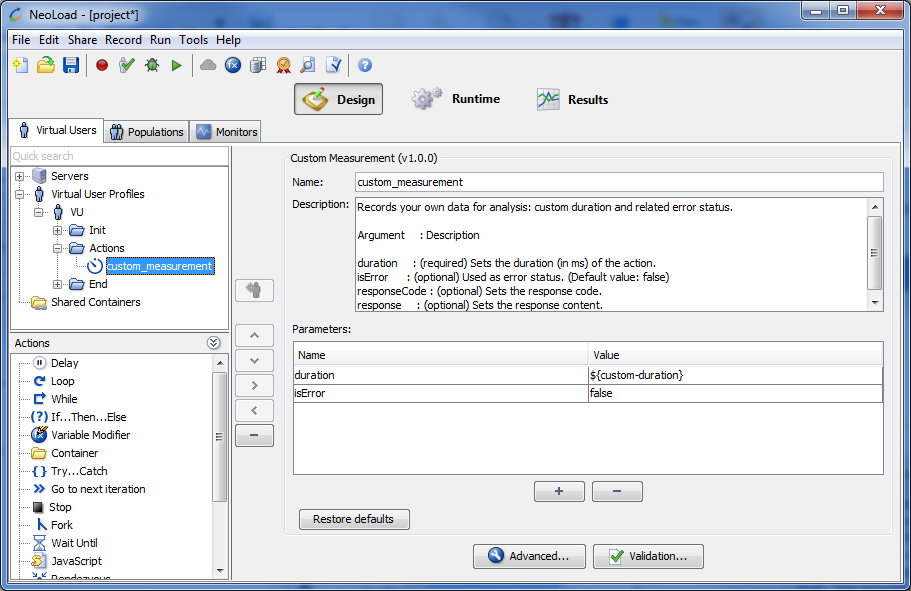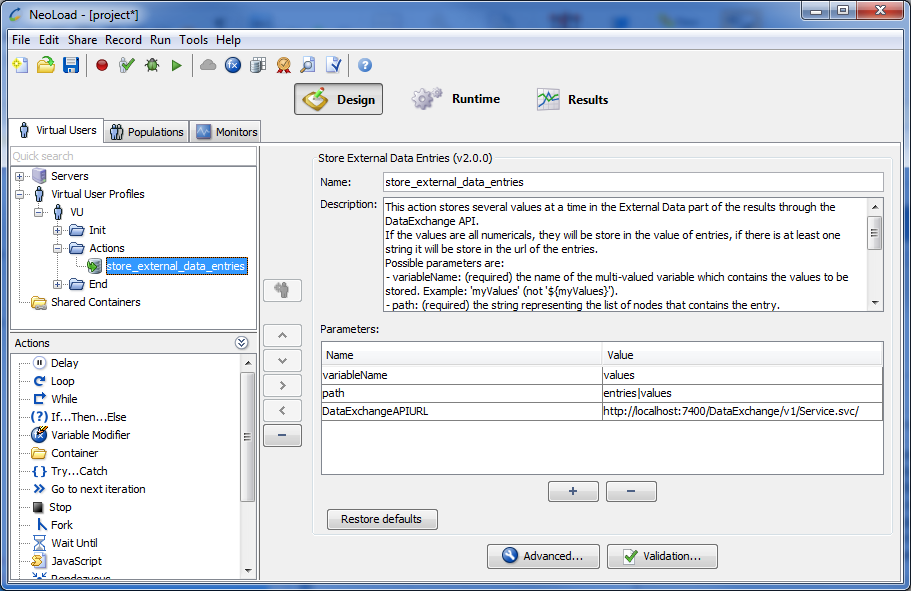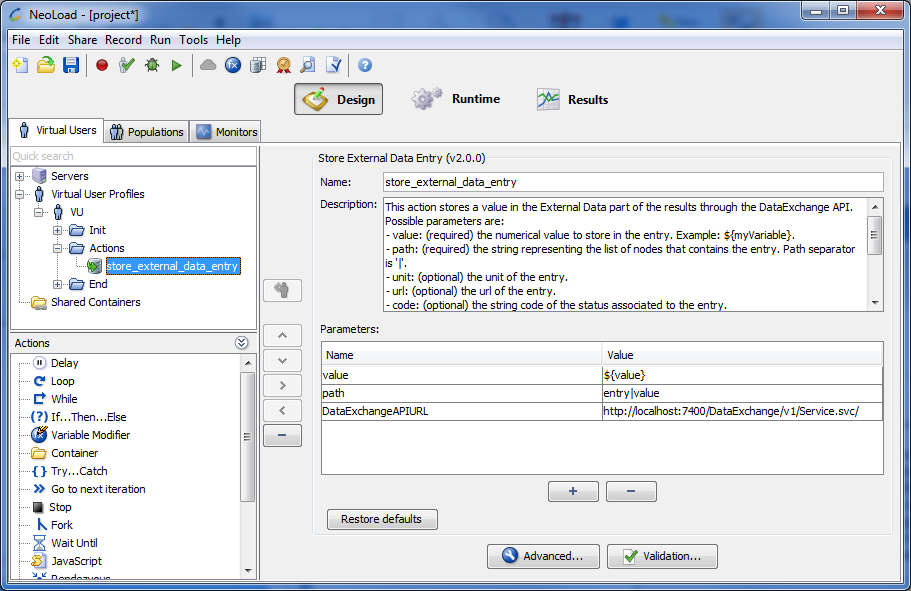Miscellaneous
Custom Measurement
The Custom Measurement Advanced action enables you to record customized data to perform an analysis of an action.
Typically used to track the values of a NeoLoad variable over time, the variable value being generally extracted from an HTTP or SQL response, or computed by Javascript. This is very interesting to monitor a business metric of an application like the number of orders being processed in the previous minute for example.

Parameters:
-
duration: The duration (in ms) of the action.
-
isError (optional): sets the Advanced action response in error. (Default value: false)
-
responseCode (optional): Sets the response code.
-
response (optional): Sets the response content.
Store External Data Entries
The Store External Data Entries Advanced action stores several values at a time using the Data Exchange API. Theses values are referred to as “External Data” in the Runtime and Results tabs. A typical use is to grab business-related metrics through a Variable Extractor or through the SQL action and store them for later analysis. The entry values can be structured in a tree by specifying different paths in the path parameter.
Note: If at least one of the variable values is not numerical, all values will be displayed in the URL column of the External Data.

Parameters
-
variableName: The name of the multi-valued variable which contains the values to be stored. Example: “myValues” (not “${myValues}”).
-
path: The string representing the list of nodes that contains the entry.
-
unit (optional): The unit of the entry.
-
code (optional): The string code of the status associated to the entry.
-
message (optional): The message of the status associated to the entry.
-
state (optional): The state of the status associated to the entry. Possible values are
PASSandFAIL. -
DataExchangeAPIURL (optional): Where the DataExchange server is located. Optional, by default it is:
http://${NL-ControllerIp}:7400/DataExchange/v1/Service.svc/. -
DataExchangeAPIKey: The identification key specified in NeoLoad.
Examples
An example of values stored from a multi-valued variable:
-
variableName:
ids -
path:
index|ids
A full example of values stored from a multi-valued variable:
-
variableName:
categories -
path:
index|categories -
code:
ERROR_INVALID_HANDLE -
message:
The handle is invalid. -
state:
FAIL -
DataExchangeAPIKey:
myKey
Store External Data Entry
The Store External Data Entry Advanced action stores a numerical value using the Data Exchange API. This value is referred to as “External Data” in the Runtime and Results tabs. A typical use is to grab business-related metrics through a Variable Extractor or through the SQL action and store them for later analysis. The entry values can be structured in a tree by specifying different paths in the path parameter.

Parameters
-
value: The numerical value to store in the entry. Example: “
${myVariable}”. -
path: The string representing the list of nodes that contains the entry. Path separator is ‘|’.
-
unit (optional): The unit of the entry.
-
url (optional): The url of the entry.
-
code (optional): The string code of the status associated to the entry.
-
message (optional): The message of the status associated to the entry.
-
state (optional): The state of the status associated to the entry. Possible values are
PASSandFAIL. -
DataExchangeAPIURL (optional): Where the DataExchange server is located. Optional, by default it is:
http://${NL-ControllerIp}:7400/DataExchange/v1/Service.svc/. -
DataExchangeAPIKey: The identification key specified in NeoLoad.
Examples
An example of values stored from a variable:
-
value:
${time} -
path:
time -
unit:
ms
A full example of values stored from a variable:
-
value:
${executionTime} -
path:
variables|int|executionTime -
unit:
ms -
url:
http://www.myapp/script1 -
code:
ERROR_INVALID_HANDLE -
message:
The handle is invalid. -
state:
FAIL -
DataExchangeAPIKey:
myKey